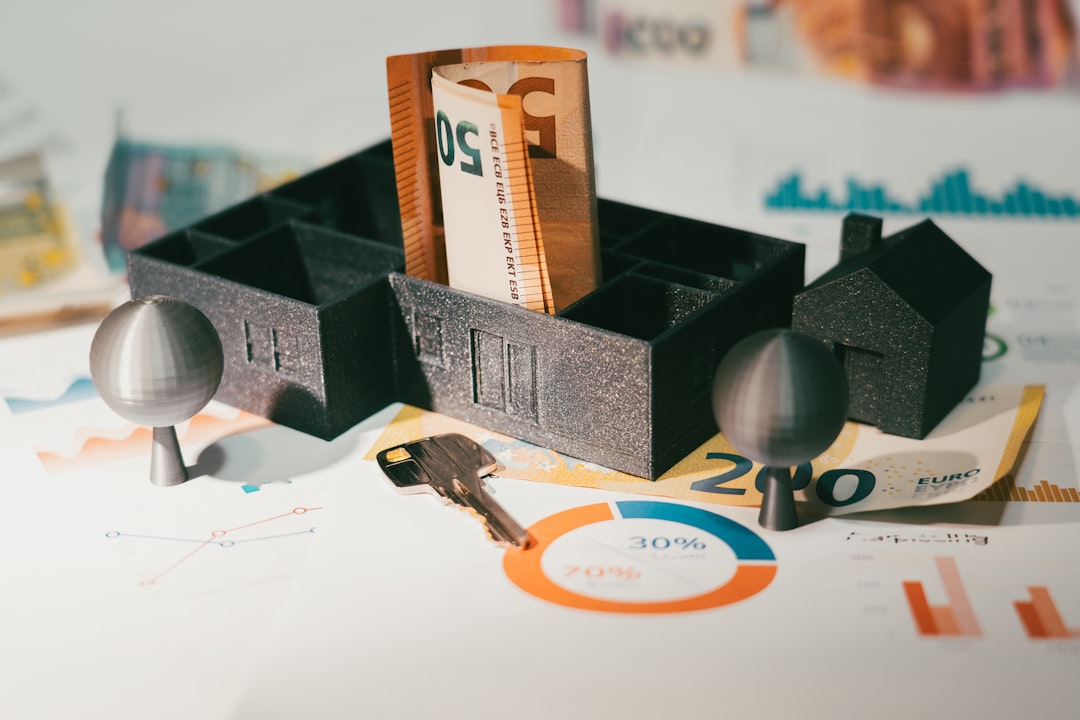Debt Consolidation Mortgages streamline high-interest credit card payments by combining them into a single loan with lower rates and extended terms. This strategy reduces monthly outgoings, simplifies repayment, and improves credit profiles over time. Before applying, assess financial health, compare offers from multiple lenders, and understand potential collateral requirements. Maintain a structured budget to avoid defaulting and ensure successful debt consolidation mortgage repayment.
Struggling with multiple credit card payments? Discover how Credit Card Debt Consolidation can simplify your financial life. This comprehensive guide explores the benefits of consolidating debt, including reduced monthly payments and improved cash flow. We’ll walk you through choosing the right loan, understanding the process, and maintaining success after consolidation. By integrating these strategies with a mortgage debt consolidation approach, you can achieve better financial management and a clearer path to debt-free living.
- Understanding Credit Card Debt Consolidation
- Benefits of Debt Consolidation for Credit Cards
- How Debt Consolidation Can Reduce Payments
- Choosing the Right Debt Consolidation Loan
- The Process of Consolidating Credit Card Debt
- Strategies to Maintain a Successful Consolidation
Understanding Credit Card Debt Consolidation

Credit card debt consolidation is a strategic financial move designed to simplify and reduce the burden of multiple high-interest credit card payments. It involves taking out a new loan to pay off existing credit card debts, typically with a lower interest rate. This approach not only streamlines repayment but also significantly lowers monthly outgoings by consolidating various credit card balances into one manageable payment.
Debt consolidation can be achieved through different methods, including personal loans, home equity loans (using your mortgage as collateral), or balance transfer cards. Homeowners may opt for debt consolidation mortgages, allowing them to tap into the equity built in their properties. This option offers substantial savings on interest rates and can provide a more extended repayment period, making it an attractive solution for those struggling with credit card debt.
Benefits of Debt Consolidation for Credit Cards

Debt consolidation for credit cards can be a powerful strategy to simplify financial management and reduce monthly outgoings. By bundling multiple high-interest credit card debts into a single loan with a lower interest rate, individuals can gain better control over their finances. This simple yet effective method allows cardholders to focus on repaying one lender rather than several, streamlining the payment process and potentially saving money in the long run.
One of the significant advantages is the opportunity to lower monthly payments, which can free up cash flow for other essential expenses or even savings. Additionally, debt consolidation mortgages, when used responsibly, can help individuals establish a more robust credit profile over time. With consolidated debts, there’s less risk of missing payments due to the simplified repayment structure, leading to improved credit scores and access to better financial opportunities in the future.
How Debt Consolidation Can Reduce Payments

Debt consolidation offers a strategic approach to managing multiple high-interest credit card debts by combining them into a single loan with a lower interest rate. This simplifies repayment by consolidating all payments onto one schedule, reducing the overall number of transactions and potential late fees. Moreover, a consolidated mortgage-like structure can result in lower monthly payments, offering significant financial relief for individuals burdened by substantial credit card debt.
By refinancing credit card balances into a debt consolidation loan, borrowers can take advantage of fixed interest rates, which eliminates the risk of fluctuating payment amounts due to market changes. This predictability streamlines budgeting and ensures that each month’s payment goes towards paying down both principal and interest, ultimately leading to quicker debt elimination compared to maintaining multiple credit card payments.
Choosing the Right Debt Consolidation Loan

When considering debt consolidation, it’s crucial to choose a loan that aligns with your financial needs and goals. One popular option is Debt Consolidation Mortgages, which can offer lower interest rates and longer repayment terms compared to other types of loans. This makes them particularly appealing for those burdened by high-interest credit card debt. However, it’s essential to assess your current financial situation, including your income, existing debts, and credit score, before applying.
To select the right Debt Consolidation Mortgage, compare offers from multiple lenders, focusing on factors like interest rates, fees, loan terms, and repayment options. Additionally, consider the type of security required for the loan, as some mortgages may require collateral, such as your home or another valuable asset. By making an informed decision based on these considerations, you can effectively reduce monthly payments and work towards financial stability.
The Process of Consolidating Credit Card Debt

Debt consolidation is a strategic approach designed to simplify and reduce your debt burden, especially for multiple credit card debts. The process involves combining several outstanding credit card balances into one new loan with a single interest rate and repayment terms. This simple consolidation can significantly lower your monthly payments by extending the repayment period, which in turn reduces the overall interest paid over time.
When considering debt consolidation, borrowers often opt for secured loans, such as home equity loans or lines of credit, given their higher borrowing limits and competitive rates. The loan proceeds are then used to pay off all existing credit card debts, effectively consolidating them into a single, more manageable obligation. This streamlined approach can save money and simplify financial management by replacing multiple monthly payments with one consistent repayment.
Strategies to Maintain a Successful Consolidation

After consolidating your credit card debt, it’s crucial to maintain a successful repayment strategy. One effective approach is to create a structured budget that allocates dedicated funds for debt repayment each month. This discipline ensures consistent payments, minimizing the risk of defaulting or accumulating new debts. Prioritize paying off high-interest debts first while making minimum payments on others can help reduce overall interest charges and expedite your journey towards financial freedom.
Additionally, consider using automated payment systems linked to your bank account for seamless debt repayment. This automation streamlines the process, reducing the chance of missed payments due to human error or forgetfulness. Moreover, staying disciplined with your spending habits is paramount. Avoid accumulating new credit card debt and focus on living within your means. Regularly reviewing your budget and adjusting as needed ensures you stay on track, ultimately leading to the successful repayment of your consolidated mortgage debts.
Debt consolidation can be a powerful tool for managing credit card debt, offering significant benefits like lower monthly payments and interest rates. By consolidating your credit card debt into a single mortgage-style loan, you gain clarity, simplicity, and the opportunity to pay off your balance more efficiently. When choosing a consolidation option, it’s crucial to compare rates, terms, and fees. With careful planning and discipline, debt consolidation can be a successful strategy for financial freedom.
